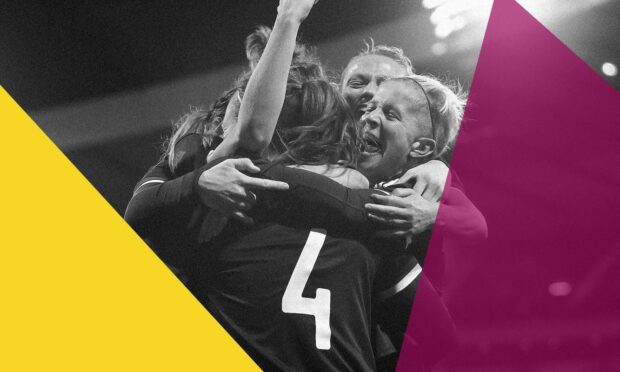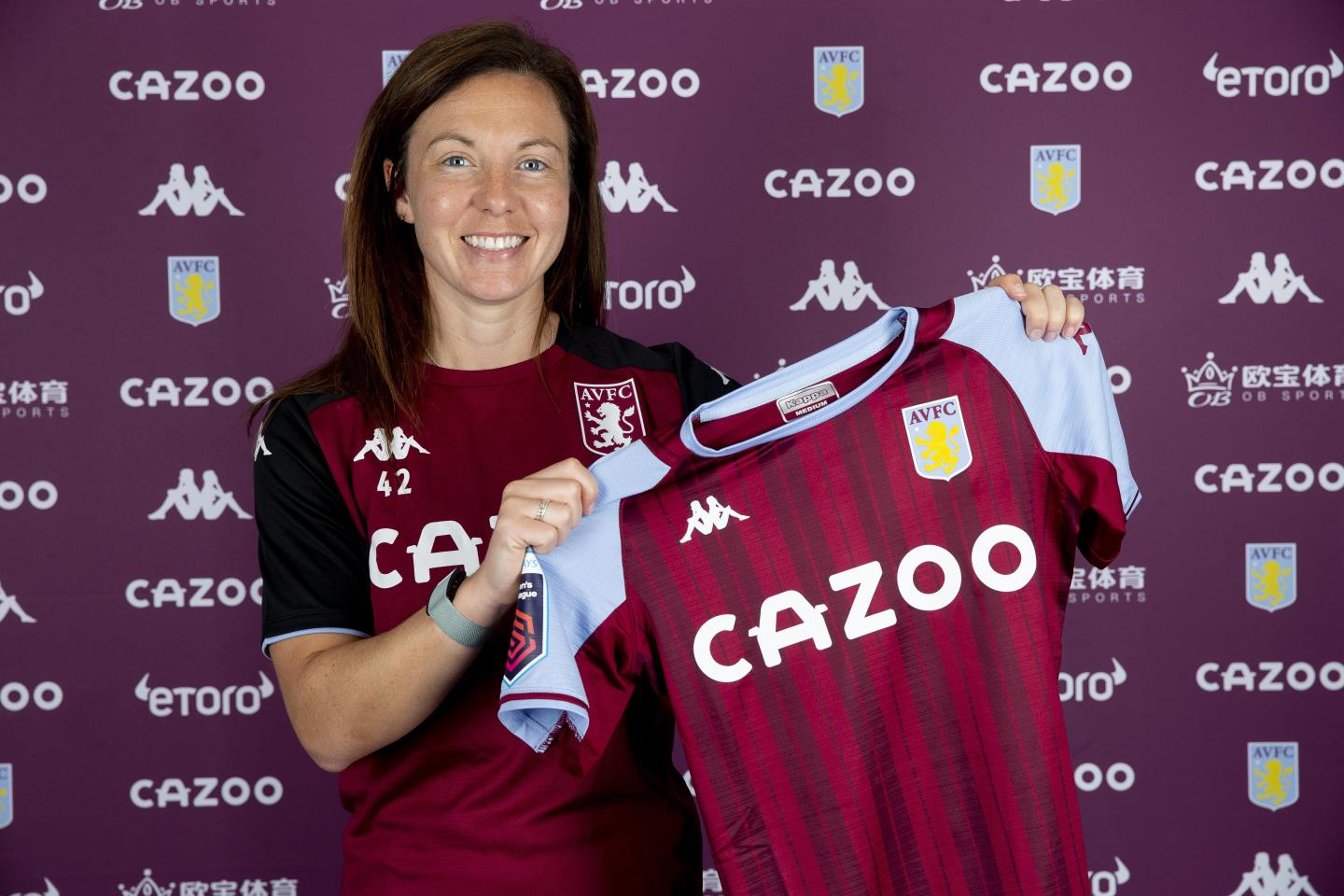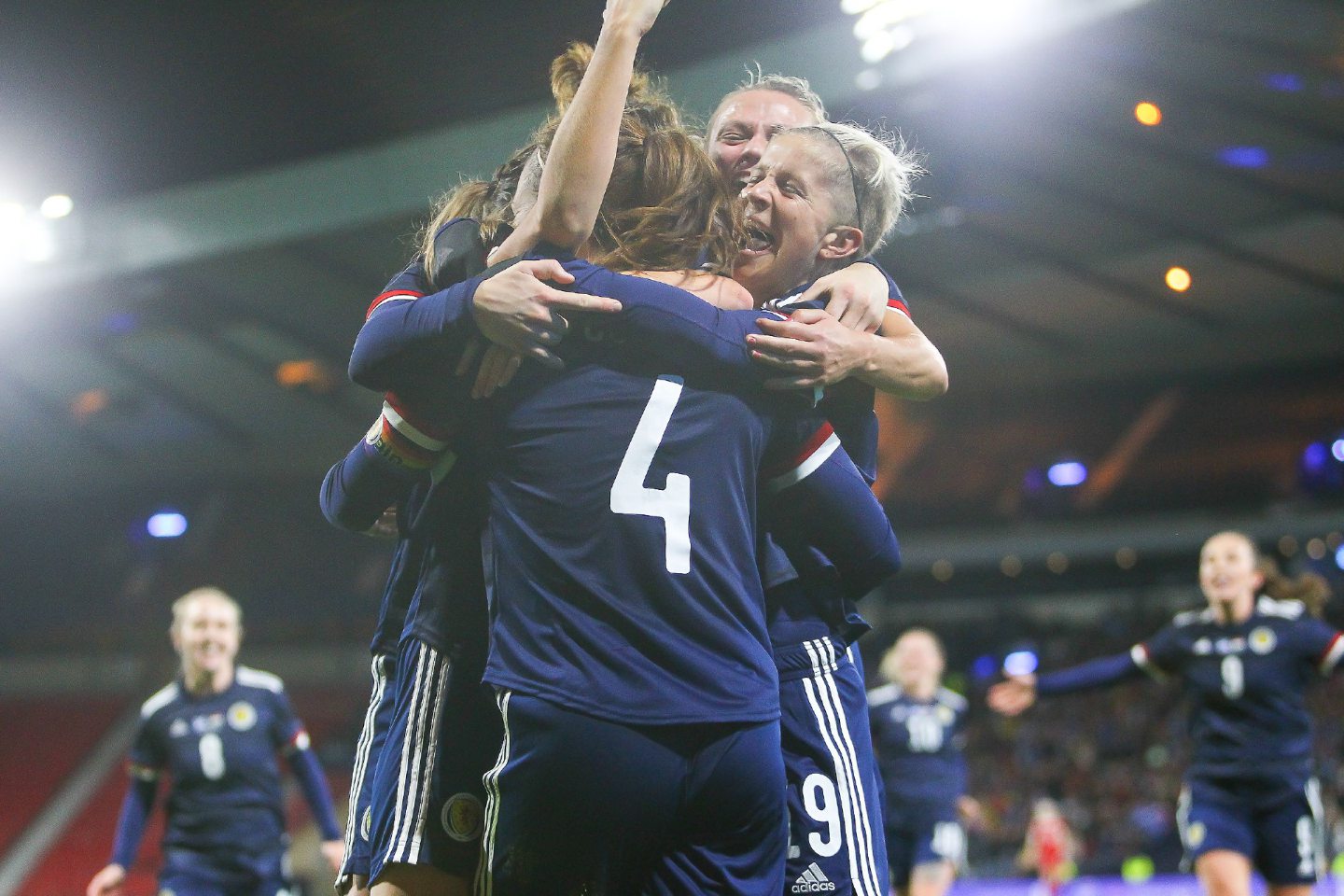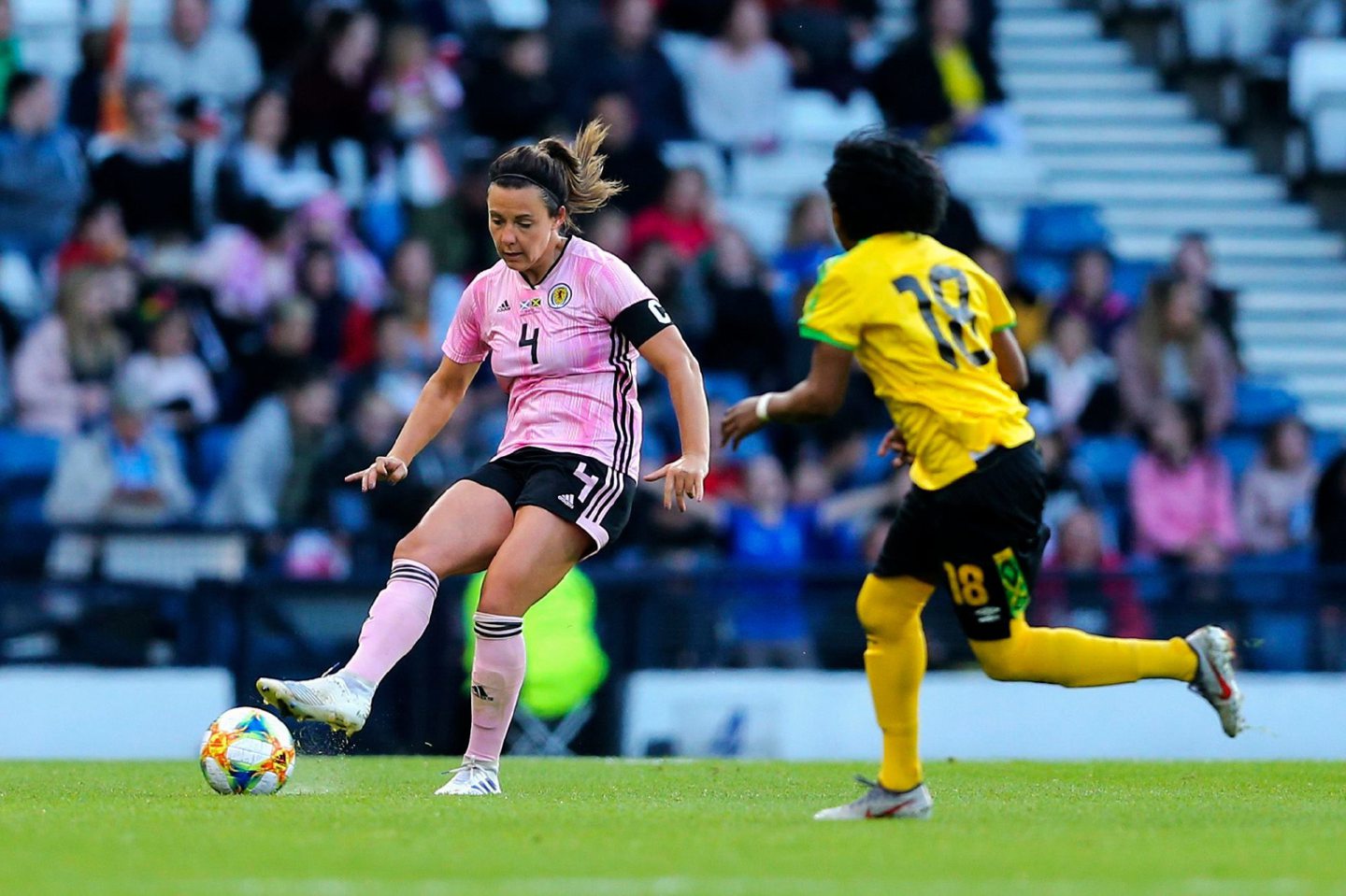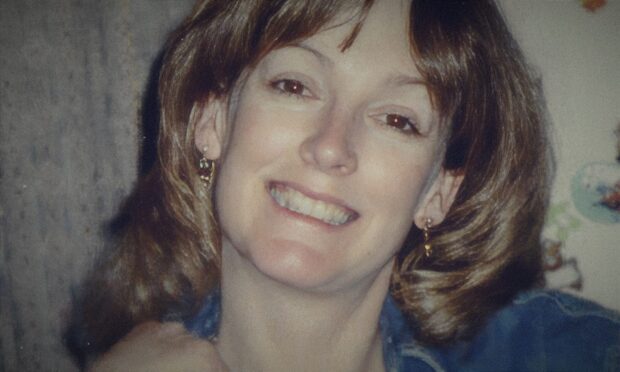“I think women’s sport endures excessive and unwarranted abuse simply for its existence.”
From scoring last-minute winners at Hampden Park and leading Scotland to their first ever World Cup, Rachel Corsie has achieved more than most might get the chance to do in football.
Her career has taken her from Aberdeen to the United States with spells in Glasgow, England and Australia in between.
Now back in England with Aston Villa, Corsie has a wealth of experience on the pitch and knows that women’s football still has a battle to fight off it.
A history of abuse
The Scotland skipper is not alone with that feeling, as 71% of women who responded to our survey said they have experienced or witnessed discriminatory behaviour towards women in football.
“Before you even get to discussing the quality on the pitch, there’s, at times, negative connotations or derogatory slurs still attributed to the game and those playing it,” Corsie said.
“That’s existed for a long time and comes from the history of the professionalism of women’s sport.
“Unravelling that and changing it is going to take a lot of conscious effort. There’s a lot of people making a great impact in that regard, but how far we still have to go I would have to say is significant.”
Corsie leads by example and feels a responsibility to help improve her players’ welfare by having conversations with the national team about their experiences of discriminatory behaviour and how they can best help one another through such difficult times.
She added: “I feel it is a conversation that we regularly try and encourage the girls to have within the national team environment, whether that is a collective group or smaller conversations within closer friend circles.
“We have a very close-knit team currently and I think all players feel they at least have one or two players they could confide in over matters that were ever more sensitive in nature.
“Many of the team have closely experienced the games’ growth and have also been fundamental to the acceleration of that in recent years.
“Therefore, many understand the importance of continuing to push boundaries and demanding better standards and this is certainly a topic that comes up and we hope to make a positive impact with,
“It goes along with importance of mental health conversations, which are fundamental to player well-being and these exchanges continue to become more prevalent.
‘We have to open up and talk about it’
With the women’s game continuing to grow and players become more of a target to online trolls and abuse, Corsie said she feels the conversations footballers have will become even more vital for their welfare.
She added: “As much as people can say that players don’t need to read it, it can be difficult to avoid at times and some players are more subjected to it than others.
“For different people it can take just one single comment to be damaging or for others it can be an accumulation of them, and it can be really difficult and overwhelming to handle.
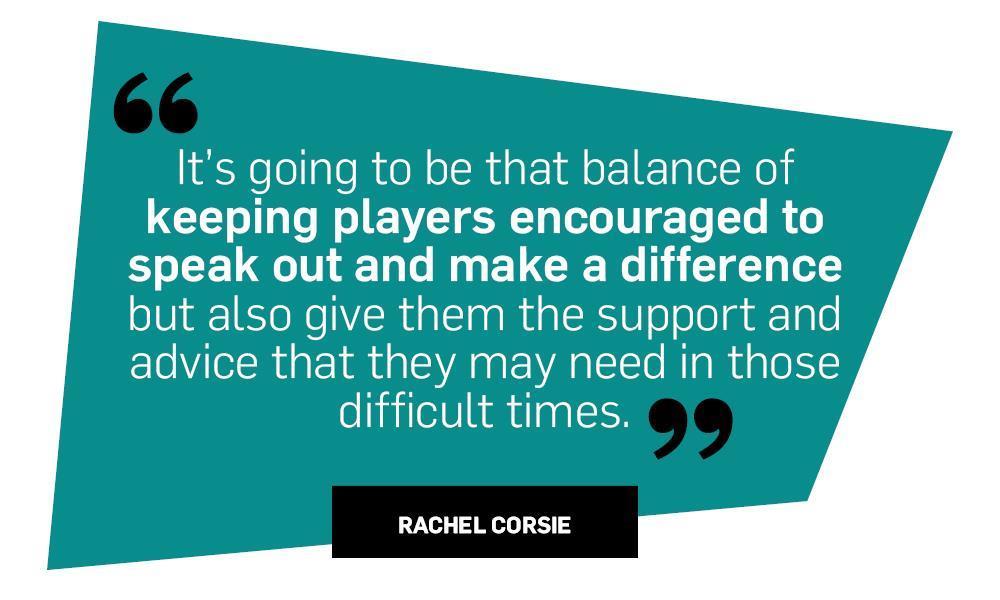
“As professional players and as the game is becoming more professional, these are the things that we have to open up and talk about.
“We have to learn how best to deal with it and recognise that different coping mechanisms will be effective in different circumstances.
“I would say that, over the last three to five years, examples of players and teammates that I know who have suffered from these types of experiences have just increased.
“It’s going to be that balance of keeping players encouraged to speak out and make a difference but also give them the support and advice that they may need in those difficult times.”
In our survey, 54% of respondents felt the football industry does not currently do enough to reduce discriminatory behaviour.
Still great work to be done
Corsie said she believes abusive behaviour is a wider reflection of our society and the best way to stop such incidents is to continue to educate and call out any forms of abuse.
“It’s something that is almost accepted because it has always existed within football and it highlights there is still great work to be done,” Corsie added.
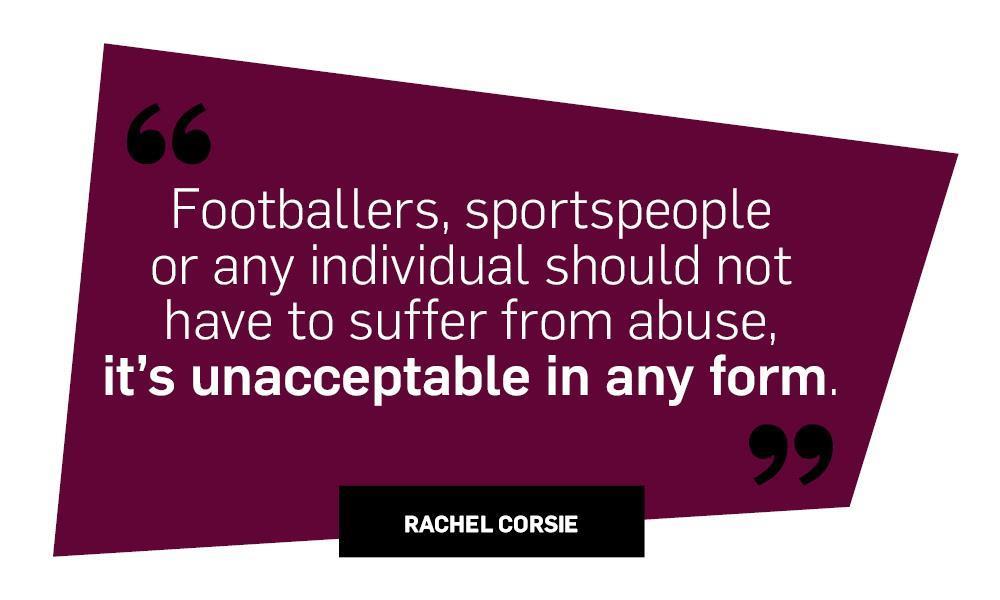
“Footballers, sportspeople or any individual should not have to suffer from abuse, it’s unacceptable in any form. We have to be accountable for our own behaviour and be willing to help others to behave with moral integrity as well.
“A large aspect of change continues to rely on education.
“Hopefully that can contribute to helping society understand that it is perhaps someone’s right to say what they want but it’s not right that it can come in the form of abuse.
“You can think I’m the worst football player in the world, but you don’t need to tag me in social media posts or equally use that as an excuse to say nasty and cynical remarks over unrelated personality and character traits.
“That’s something that people think they’re entitled to do and, in some way, they are because social media platforms allow you to actually do it.
“I know there are a lot of people, professional players in the men and women’s game, who are trying to stand up against it.
“It’s just going to be one of those things where for as long as social media exists and while there’s not barriers to these types of things, it’s always going to be a fight to reduce it and to show that it’s unacceptable.”
Anyone who witnesses sexist abuse, harassment or discrimination, can report it in a number of ways.
You can report discrimination within Scottish grassroots football to the Scottish Football Association.
Or search for Scottish FA Grassroots in Google Play or App store.
Also, the Her Game Too anti-sexism campaign has an anonymous online form.
If you feel the form of discrimination you witnessed either on the pitch or online could be a hate crime, you may also report it to Police Scotland via 101.
Read more from this series
- Survey reveals scale of sexist abuse facing those who love the game
- Amy Strath: We are playing our own game – it is women’s football. We deserve to be treated with respect
- Sophie Goodwin: I was too scared to call out abuse in women’s football before. But that’s what I’m doing now
- Zoe Ogilvie: Let’s celebrate the differences and opportunities women’s football offers
- ‘Great strides made but we must remain vigilant to combat sexism in football’
- Georgia Carter: Online abuse has to be taken seriously for women’s football to grow
- Elsie Cook: We have to speak out against sexists. We can’t let them win
- Donna Paterson: We were left to get changed in the stands… You’d never see that in the men’s game
Credits
Words and interviews by Sophie Goodwin and Stephen Stewart
Story design by Cheryl Livingstone
Graphics by Carly Gilchrist
Data visualisations by Emma Morrice
Video by Drew Farrell, Kim Cessford and Gregor Aiken
